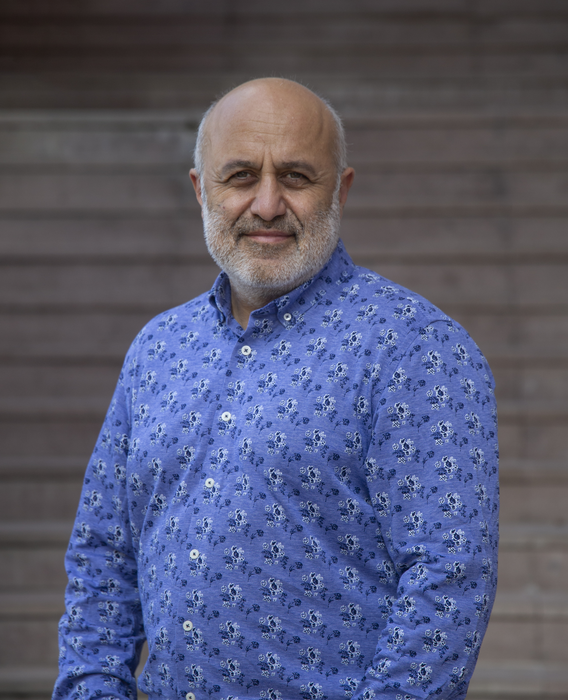A research project conducted at Koç University aims to shed light on future social and environmental threats. The study of 30,000 km2 of land in Turkey and Bulgaria will analyze radical changes in land use and land cover. Correlating the data with population dynamics, the research will contribute to predictions of possible agricultural population loss and deforestation in the future.
Conducted by Assoc. Prof. M. Erdem Kabadayı of the Koç University Department of History, the project titled “A GeoAI-based Land Use Land Cover Segmentation Process to Analyze and Predict Rural Depopulation, Agricultural Land Abandonment, and Deforestation in Bulgaria and Turkey, 1940-2040” was granted a Proof of Concept Grant by the European Research Council (ERC).
Assoc. Prof. M. Erdem Kabadayı’s earlier research project titled “UrbanOccupationsOETR”, conducted in collaboration with Cambridge University and the University of Glasgow, which was awarded a 1,5 million euro grant by the ERC, constitutes the basis of this new project. The only ERC project in its field that compares the economic histories of Turkey and the Ottoman Empire, the “UrbanOccupationsOETR” project focused on differences in urbanization and regional economic development in Turkey from 1850 to 2000.
Supporting efforts against ecological, economic, and social threats in the 2040s

Credit: Koç University
A research project conducted at Koç University aims to shed light on future social and environmental threats. The study of 30,000 km2 of land in Turkey and Bulgaria will analyze radical changes in land use and land cover. Correlating the data with population dynamics, the research will contribute to predictions of possible agricultural population loss and deforestation in the future.
Conducted by Assoc. Prof. M. Erdem Kabadayı of the Koç University Department of History, the project titled “A GeoAI-based Land Use Land Cover Segmentation Process to Analyze and Predict Rural Depopulation, Agricultural Land Abandonment, and Deforestation in Bulgaria and Turkey, 1940-2040” was granted a Proof of Concept Grant by the European Research Council (ERC).
Assoc. Prof. M. Erdem Kabadayı’s earlier research project titled “UrbanOccupationsOETR”, conducted in collaboration with Cambridge University and the University of Glasgow, which was awarded a 1,5 million euro grant by the ERC, constitutes the basis of this new project. The only ERC project in its field that compares the economic histories of Turkey and the Ottoman Empire, the “UrbanOccupationsOETR” project focused on differences in urbanization and regional economic development in Turkey from 1850 to 2000.
Supporting efforts against ecological, economic, and social threats in the 2040s
The project led by Assoc. Prof. M. Erdem Kabadayı, who is renowned for his research on Ottoman economic and labor history, is also a first methodologically to process black-and-white aerial and satellite images through artificial intelligence and deep learning methods. It is also a first in terms of its aim to analyze aerial and early satellite images from 1940 onwards and modern satellite data through remote sensing methods in order to predict the relation between population and land use in the 2040s and its effects on agricultural and population geography. The project aims to contribute to efforts to fight ecological, economic, and social threats to emerge in the 2040s.
The project will be conducted in collaboration with Prof. Elif Sertel of the Istanbul Technical University (İTÜ) Department of Geomatics Engineering, and with the contributions of Koç University Research Center for Anatolian Civilizations Director Prof. Chris Roosevelt. A team consisting of researchers from Koç University and İTÜ will be formed for the project.
The output of the project, which was awarded a 150,000 euro Proof of Concept grant by the ERC, will be shared with local governments, relevant ministries and EU institutions, in order to fulfill a social responsibility with a broader field of impact.




